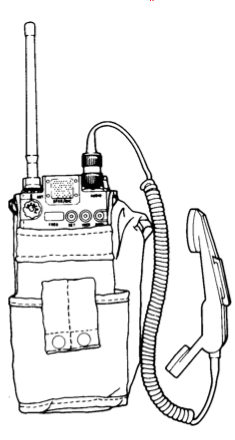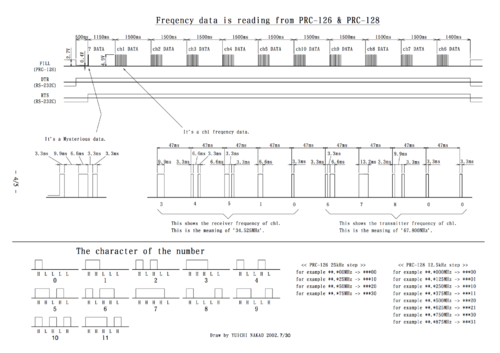AN~PRC-126
The AN/PRC-126 is susceptible to adversary jamming and friendly co-site interference. Alternate frequencies must be identified for use in case of jamming, and leaders must ensure that Soldiers are trained to recognize, overcome, and report jamming activities.
The AN/PRC-126 enables small unit leaders to adequately control the activities of subordinate elements in accomplishing the unit’s mission. It is a short-range, handheld, or vehicular mounted tactical radio, used primarily at the squad/platoon level. Vehicular power requires connection to an OG-174, amplifier power supply. It’s key features include—
- Lightweight,militarized transceiver providing two-way voice communications.
- Frequency range of 30–87.975MHz
- Frequency separation is 25kHz
- Nominal range for reliable communications over rolling, slightly wooded terrain is
- 500 meters (1,640.4 ft) with the short antenna, or
- 3,000 meters (9,842.5 ft) with the long antenna
- Standard battery (lithium) operating time is 70hours
- Capable of operating with SINCGARS in the fixed frequency mode.
- Capable of providing secure voice operation when used with the TSEC/KYV-2A secure voice module
- Digital communications for passing TACFIRE data are possible when connected to the OG-174. (Refer to TM 11-5820-1025-10 for more information on the AN/PRC-126 and FM 6-50 for additional information on transmitting TACFIRE data with the AN/PRC-126.)
In the light infantry platoon, the rifle squad has two AN/PRC-126 radios: one for the squad leader and the other for the A-team leader. Air assault and airborne infantry squads have only one AN/PRC-126 each. If tasked to conduct a patrol, the dismounted section of a Bradley infantry fighting vehicle mechanized infantry platoon, should task organize its radio equipment in the preparation phase to ensure teams will have communications.
Images
Programming Interface
The PRC-126, 128, and 68B Series radios can be manually programmed by using the buttons on the front of the radio, however this gets cumbersome when you have lots of frequencies or lots or radios. These radios have the capability to be programmed with a computer. The following are details on developing an interface for this.
TODO: add file of the front
Communication protocol
The clone communication, is shown in page 3, the results read out from the PRC-126. Order of the channel data, has become a "ch1 → ch2 → ch3 → ch4 → ch5 → ch10 → ch9 → ch8 → ch7 → ch6". Interval of each character data is also open 47msec. Interval of each data channel is open also 1.5sec. It is not known why, do we order this, do you have over time so.
Production of 4. Controller Initially, in order to adjust the timing, I made a one-chip microcomputer PC. Programming in a PC makes it easy to do this, Then, adjust the timing with the API function "timeGetTime ()" and the WINDOWS, I was able to greatly simplified like on page 4.
Photo 3 controller internal 12.5kHz step 5.PRC-126 If you set only in body, PRC-128 is a step, but 12.5kHz, 25kH z step only possible PRC-126. This software, when I tried to send it to PRC-126 data of PRC-128. 12.5kHz steps I have also in the PRC-126 what. did work with 12.5
PRC-126 that was set in step 4 12.5kHz photo
Related Files
- Operators Manual
- Radio Set
- AN/PRC-126 (5820-01-215-6181)
- 1 February 1988
- Operation and Maintenance Instructions
- with Illustrated Parts Breakdown
- Radio Set
- AN/PRC-126
- Magnavox Part No. 707608-821
- 1 May 1987
- UNIT AND INTERMEDIATE DIRECT SUPPORT AND
- GENERAL SUPPORT MAINTENANCE MANUAL
- (INCLUDING REPAIR PARTS AND SPECIAL TOOLS LIST)
- RADIO SET
- AN/PRC-126 (NSN 5820-01-215-6181)
- 1 September 1988


